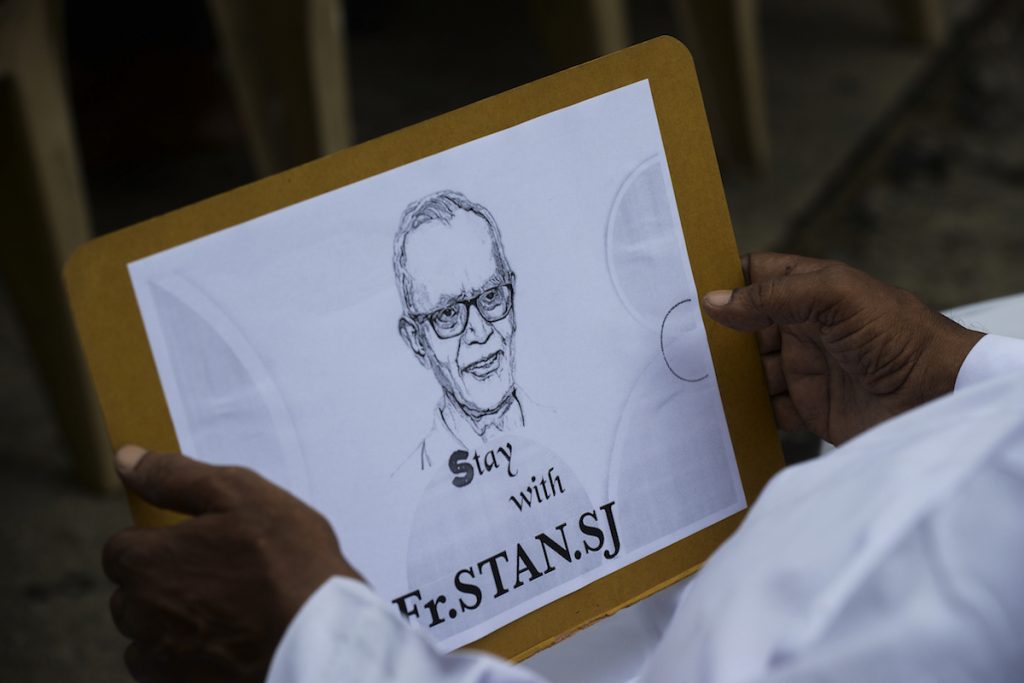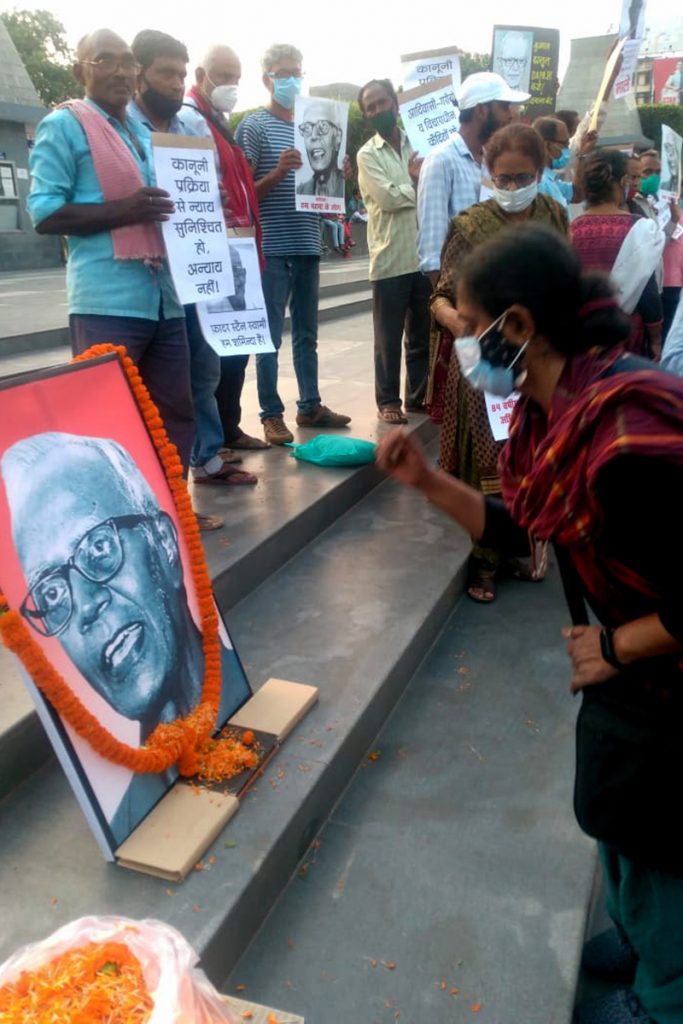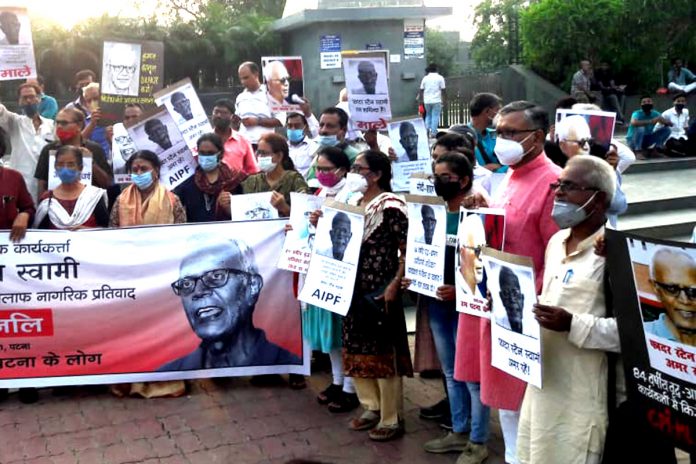The death of Indian Jesuit priest Stanislaus Lourduswamy, popularly known as Stan Swamy, while in detention caused an outcry in India and abroad.
On July 6, the United Nations said it was deeply disturbed by the death of the 84-year-old priest who championed the rights of indigenous peoples.
Father Swamy, who was in detention for almost nine months over terrorism-related charges, died on July 5 ahead of a scheduled bail hearing.
Liz Throssell, spokesperson for the Office of the UN High Commissioner for Human Rights, said they are “deeply saddened and disturbed” by the death of the priest.
The UN body reiterated its call for India to ensure that no one is “detained for exercising their fundamental rights to freedom of expression, of peaceful assembly and of association.”
Mary Lawlor, the UN Special Rapporteur on the Situation of Human Rights Defenders, described the news of the priest’s death as “devastating”.
The European Union’s Special Representative for Human Rights, Eamon Gilmore, said the EU had been raising Father Swamy’s case repeatedly.
Bärbel Kofler, Germany’s Commissioner for Human Rights Policy and Humanitarian Assistance, said she was “deeply saddened” by the Jesuit priest’s death.
“I met him on my travels to India in 2018, his fight for the Adivasi, marginalized groups and against poverty inspired me greatly and was a comfort to many,” Kofler said in a Twitter post.
“It is difficult to understand why, at over 84 years of age and with severe health problems, he had to spend the last nine months of his life in prison,” she wrote.
In India, social activists called for a nationwide “dark resistance” campaign on July 8.
In Patna, the state capital of Bihar, from which Jharkhand State was carved out in 2000, protests were held by civil society groups.
“We fail to understand why an 84 year old social worker, greatly weakened by diverse ailments could not get a bail for a case in which he claimed absolute innocence,” said Father G.P. Amalraj of the Northeast India Regional Bishops’ Council.
“[The priest’s detention and death] has shaken the confidence of society in our justice system and tarnished the image of the country at the international level,” added Father Amalraj.

Priyeranjan Dwyer, secretary of the Young Men’s Christian Association in Gaya, Bihar, said Father Swamy’s “relentless mission for the upliftment of the Dalits and Adivasis cannot be forgotten.”
“Various allegations were imposed on him and we feel that the case should be heard posthumously and judgment pronounced for the people to know the truth,” he said.
Father Antonysamy Stephenraj, regional director of the Jesuit Refugee Service, described the death of Father Swamy as “a murder of democracy by the fascist government.”
“Father Swamy has been a voice of the voiceless, human rights defender, a true prophet of our time,” he said, adding that his confrere “will continue to inspire many to stand with the poor.”
In a statement, India’s Ministry of External Affairs said Father Swamy was arrested and detained by the National Investigation Agency “following due process under law.”
Arindam Bagchi, the ministry’s spokesperson, said that because of the specific nature of charges against the priest, “his bail applications were rejected by the courts.”
“Authorities in India act against violations of law and not against legitimate exercise of rights. All such actions are strictly in accordance with the law,” he said.
Bagchi also claimed that “India’s democratic and constitutional polity is complemented by an independent judiciary” and “a range of national and state-level” human rights bodies, “a free media and a vibrant and vocal civil society.”
Father Swamy died on Monday, July 5, at the age of 84 after having spent the last eight months of his life jailed on terror charges for his activism on behalf of Indian society’s lowest castes.
Father Swamy suffered from cardiac arrest on July 4 at 4:30 a.m. and was put on a ventilator but he never regained consciousness.

He has been in detention since last year after he was arrested for terror-related offenses under the Unlawful Activities (Prevention) Act.
Indian authorities alleged that the priest supported the cause of banned communist groups through his civil rights organizations.
Authorities tagged the priest’s Persecuted Political Prisoners Solidarity Committee, a human rights organization, as a front organization of Maoist and extremist groups.
The Bagaicha, an organization established by Father Swamy to empower the tribal group Adivbasis, was also tagged as a communist front.
Father Swamy is the oldest person in India to face terror-related charges and he has joined 15 others including human rights activists, journalists and scholars arrested in connection to a 2018 incident of caste-based violence known locally as the Bhima Koregaon case.
The priest’s supporters said he is being branded as an anti-nationalist and was jailed because he was fighting for the implementation of laws passed by the parliament for tribal people and their constitutional rights.
Father Swamy was born into a farming family in the southern Indian state of Tamil Nadu. He joined the Jesuits after turning 20. After his ordination, he served as a priest for more than 50 years. – with a report from Frank Krishner / RVA News









